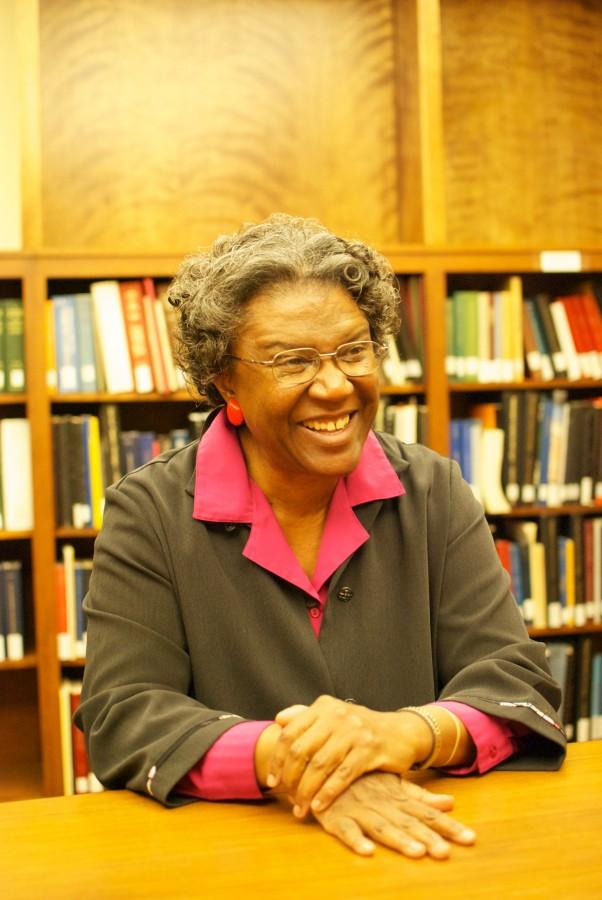She protested for student rights in the 1960’s, worked as a reporter, and went to Ghana to interview Ghanaian World War II veterans. But Adrienne Israel, vice president for academic affairs and academic dean, began her life in her great aunt’s house in the industrial steel town of Massillon, Ohio.
“We were deeply rooted with the whole mentality that people have in the Midwest,” said Israel. “The people I grew up around had a strong sense of identity as workers. So I got the love of getting things done and building things.”
Israel’s passion for writing began in the fourth grade when a teacher asked her to read one of her essays. She also helped form recreational sport leagues for the women at her school.
“School became the place I was most comfortable — socially and any other way,” said Israel. “And my softball team is one of my fondest memories of childhood. I learned a lot about how to cooperate and respect other people.”
Israel was almost always at the top of her class. Israel said that she received pressure from the African American community to stay on the honor roll, and her white teachers asked her questions like, “Why can’t all the black students be like you?”
“I began to feel that I was kind of a mascot or the exception,” said Israel. “And I was not really being respected, as my community wasn’t being respected. So I decided I was going to go to a historically black college.”
Israel said that whenever she got frustrated or did not know what to do, she went back to school. She received her bachelor’s and master’s degrees at Howard University and her doctorate from The Johns Hopkins University.
In the 1960’s, Israel became a protest leader at Howard University. Among the causes she fought for was a judicial system for students and the right for students to sit on the committees that evaluated teachers.
“I know for today’s students it seems incomprehensible — the world turned upside down,” said Israel. “We just had very restrictive lives that it’s hard to fathom.”
Israel’s stepfather, a World War II veteran, told her about Ghanaian soldiers who fought for the British. Looking into the lives of these soldiers became the subject of her dissertation. The British promised the soldiers better lives after the war; however, after the war the Ghanaian government felt no obligation to pay the soldiers’ pensions.
Working for The Washington Post, Baltimore Afro-American, and The Washington Afro-American newspapers soon became valuable experiences for Israel. Alone and with her tape recorder in hand, she interviewed at least 396 veterans in Ghana.
“My training as a reporter helped me persevere in order to get people to talk to me,” said Israel. “And finally the flood gates opened. I got pictures from the men themselves, and many times I was driven to tears.”
The Journal of Modern African Studies published some of her articles on the soldiers. These articles helped provoke the Ghanaian government into giving the soldiers their pensions.
“It really was a comfort for me to understand a civilization not grounded on monuments and how many roads you built,” said Israel. “It’s really more about community and relationships.”
After coming back from Ghana, Israel craved a stable job and life.
“I thought I had rambled a bit and I had rambled enough,” said Israel.
In 1982, she began teaching at Guilford. This position gave Israel a chance to inhabit the space she fell in love with as a child — a place where she feels most comfortable in life: school, or as she called it, the “life of the mind.”

